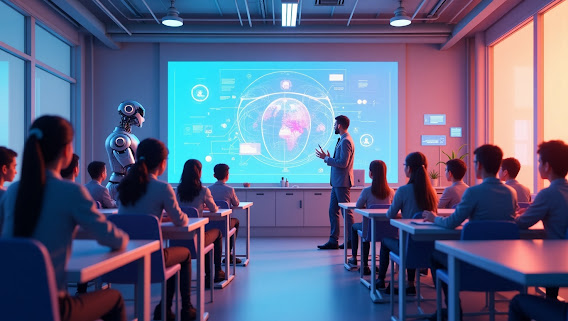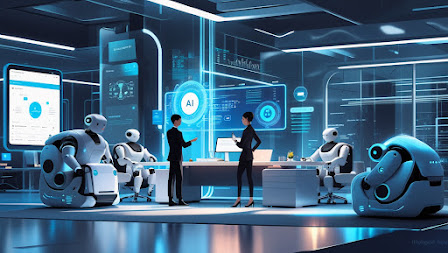AI vs. Humans: Will AI Replace Our Jobs or Create New Ones?
AI vs. Humans: Will AI Replace Our Jobs or Create New Ones?
Artificial Intelligence (AI) has taken over numerous industries, raising concerns about whether it will replace human jobs or create new opportunities. While some fear mass unemployment, others believe AI will bring innovation and redefine work as we know it. So, what’s the reality? Let’s dive deep into the debate!
1. The Fear of Job Loss: Is AI Taking Over?
One of the biggest concerns about AI is that automation will eliminate traditional jobs. Many industries, including manufacturing, customer service, and even writing, are integrating AI tools that can perform human tasks efficiently.
Jobs at Risk:
- Manufacturing & Logistics: Robots replacing factory workers.
- Customer Support: AI chatbots handling customer queries.
- Data Entry & Analysis: AI processing vast amounts of data instantly.
While these changes are happening, history shows that technology advancements often lead to job transformations rather than complete job losses.
2. AI as a Job Creator: New Opportunities Ahead
Despite automation replacing certain roles, AI is also creating new job opportunities. Emerging fields like AI development, prompt engineering, and AI ethics consulting are growing rapidly.
New AI-Driven Careers:
- AI Specialists & Engineers: Developing and improving AI systems.
- AI Ethics Consultants: Ensuring AI use is fair and unbiased.
- Prompt Engineers: Crafting AI-generated content with precision.
- Data Scientists: Managing and analyzing AI-driven insights.
Rather than eliminating jobs, AI is shifting the workforce towards roles that require creativity, strategy, and human intelligence.
3. The Future of Work: AI and Human Collaboration
The future isn’t about AI versus humans but rather AI with humans. Many industries are leveraging AI to enhance productivity, not replace workers.
Industries Thriving with AI Collaboration:
- Healthcare: AI assists doctors in diagnosing diseases.
- Education: AI-powered tools personalize student learning.
- Marketing: AI enhances customer insights and content creation.
- Finance: AI automates financial risk assessments and fraud detection.
By embracing AI as a co-worker rather than a competitor, we can harness its potential to improve efficiency and innovation.
4. How to Stay Relevant in the AI Era?
As AI continues to evolve, individuals must upskill to remain competitive. Learning AI-related skills and focusing on human-centric abilities can secure job security.
Essential Skills for the Future:
- Critical Thinking & Problem-Solving
- Creativity & Innovation
- Emotional Intelligence & Communication
- Technical AI Knowledge (Basic coding, AI tools, etc.)
Investing in lifelong learning will ensure that AI enhances careers rather than replaces them.
Conclusion: Adapt and Thrive with AI
AI is not a job killer; it’s a job transformer. While automation will replace repetitive tasks, AI will also generate new career paths that require human expertise. The key is to adapt, upskill, and embrace AI as a tool to boost productivity rather than fear its existence.
The future belongs to those who learn, innovate, and collaborate with AI. Are you ready?
#aivshumans #futureofwork #airevolution #aiinjobs #aijobmarket #artificialintelligence #machinelearning #automation #techtrends #futuretech #upskilling #aijobs #aiinworkplace #jobautomation #futureskills #aiimpact #aiinnovation #aiandhumans #aicollaboration #jobdisplacement #aiforbusiness #aiautomation #aiforproductivity #digitaltransformation #smarttechnology







Comments
Post a Comment
Your feedback is appreciated. Share your comments below!
Be respectful and kind while commenting. Thanks for participating!